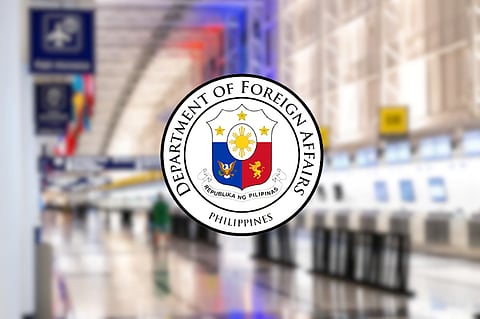
- NEWS
- the EDIT
- COMMENTARY
- BUSINESS
- LIFE
- SHOW
- ACTION
- GLOBAL GOALS
- SNAPS
- DYARYO TIRADA
- MORE

The Department of Foreign Affairs on Friday reaffirmed the country’s “unwavering commitment” to peace and the rule of law despite the“unlawful actions” of China in the West Philippine Sea, eight years after the country won the 2016 Arbitral Award on the South China Sea.
In a statement, the DFA said the Philippines over the years “has continued to demonstrate this commitment to peace even in the face of the unlawful actions which have caused serious incidents in the South China Sea, without ever diminishing our resolve to protect and promote our people’s interest and the full and responsible enjoyment of our legally settled maritime entitlements and its accompanying rights and jurisdictions.”
“This determination has only been strengthened by the broadening affirmation of the legal value of the award as a positive and legitimate source of international law,” it added.
While the Philippines and China agreed last week to “de-escalate tensions” in the disputed reefs and waters, National Security Adviser Eduardo Año said Friday that Manila would not back down.
“We will continue to stand our ground and push back against coercion, interference, malign influence, and other tactics that seek to jeopardize our security and stability,” Año said at an event celebrating the anniversary of the ruling.
Marking the eighth anniversary of the landmark arbitral victory against China, which was overwhelmingly supported by the international community, the DFA said it was “encouraged” by the expressions of support from other countries that confirmed the final and binding status of the award.
The DFA particularly mentioned the “G7’s consistent reaffirmation” that the award was “a significant milestone and a useful basis for the peaceful management and resolution of differences at sea.”
The G7 is an intergovernmental political and economic forum consisting of Canada, France, Germany, Italy, Japan, the United Kingdom and the United States.
Legal authority
Likewise, the Philippines also welcomed the International Tribunal for the Law of the Sea Advisory Opinion on Climate Change, which cited the arbitral award as “authoritative in key parts of the ruling, with multiple states or groups of states referencing the award as the legal authority in their respective oral and written statements, underscoring its unassailable status as part of the corpus of international law.”
“The award is a reaffirmation of the United Nations Convention on the Law of the Sea and protects our rights as a coastal state and a seafaring people,” the DFA said.
“Every effort to secure our legitimate interests in our maritime domain is a testament to the determination and courage of the Filipino people, while showcasing the Philippines’ vision of peace and stability that inspires and resonates beyond the waters of the South China Sea,” it added.
It continued: “With our national interest and sovereign rights in mind, the Philippines will move forward to chart a course anchored on peace, security and prosperity in our region.”
Not a permanent station
As this developed, the Philippine Navy on Friday maintained that the presence of a Philippine Coast Guard vessel at Escoda (Sabina) Shoal should not be construed as the country’s permanent station.
Navy spokesperson for the WPS, Rear Admiral Roy Vincent Trinidad, said the PCG’s deployment of the BRP Teresa Magbanua is primarily aimed at finding the cause for the sudden presence of crushed corals at the shoal.
“It’s there to monitor the unusual presence of crushed corals at Sabina shoal like two months ago and to ensure that this is not man-made, that it is all natural,” he said in an ambush interview.
“Kailangan mas matagal ang presensya ng coast guard natin dun na syang tinapatan naman ng monster ship (Our coast guard should maintain a longer presence there but then the monster ship came),” he said, referring to the China Coast Guard’s biggest ship called the Monster.
Asked if the Philippines would ground the Magbanua there permanently, Trinidad said, “No, our ship is designed to sail the seas.”
On the other hand, Trinidad said, the number of Chinese vessels swarming the nine features of the WPS was down to 95. These are vessels of the People’s Liberation Army Navy, China Coast Guard, and Chinese maritime militia.
RoRe will continue
Meanwhile, Año said the Philippines will continue to conduct rotational and re-provisional (RoRe) missions to the troops stationed on the BRP Sierra Madre at Ayungin Shoal, despite China’s increasing aggression in the area.
“The RoRe will continue, as the President said this is a regular and routinary activity because it is our right to resupply our troops on the BRP Sierra [Madre] no matter what happens,” he said.
Año dismissed China’s allegations that the Philippines was causing the environmental destruction at Ayungin Shoal.
Beijing has cited the Sierra Madre as the primary pollutant in the area.
“It is not us that is causing any environmental destruction. We have a maritime scientific survey and investigation being conducted and the results clearly show who has really been damaging the area from the start,” Año said.
“Our position remains — we want to protect the marine resources, environment and everything within our exclusive economic zone,” he added.
